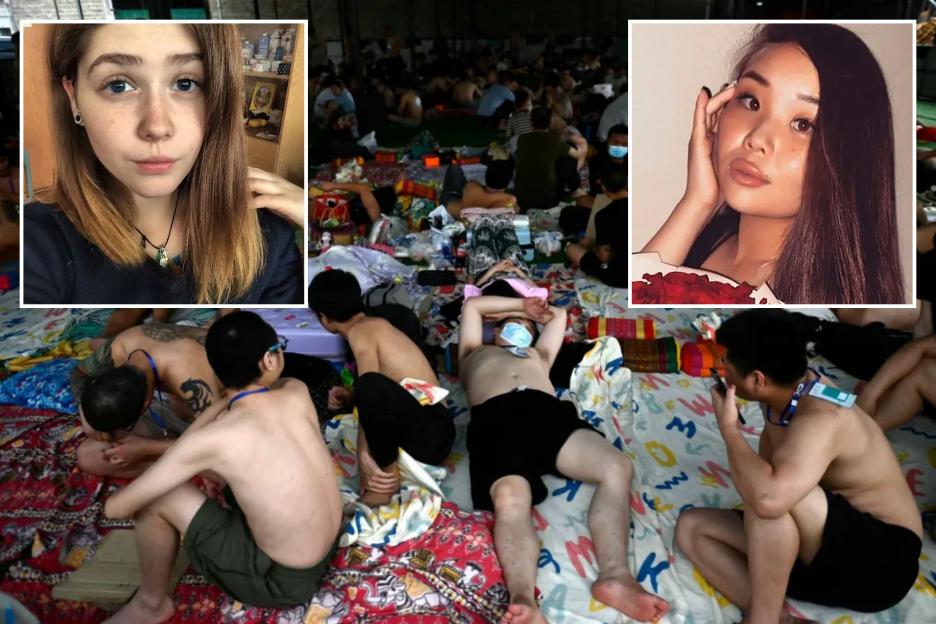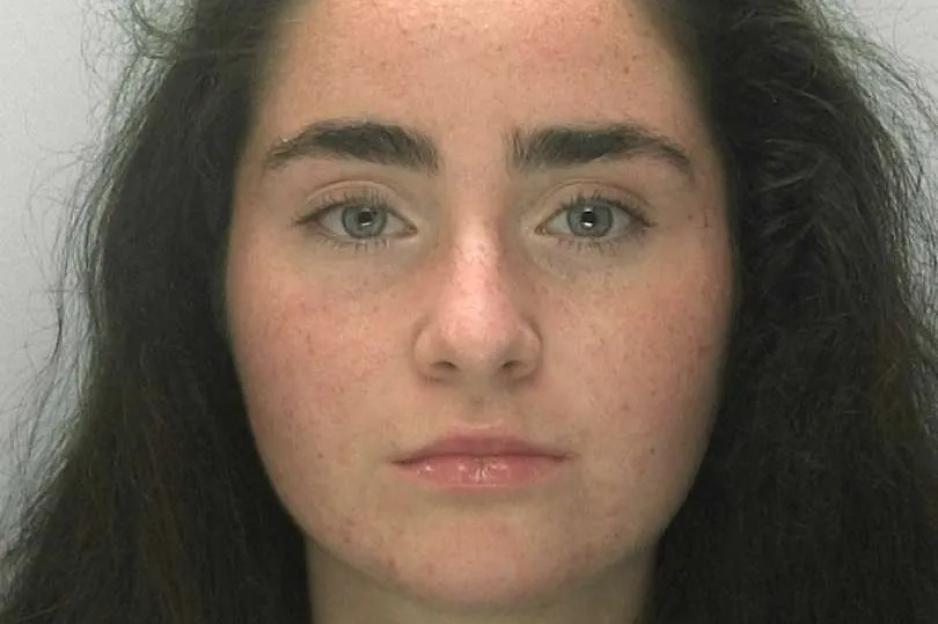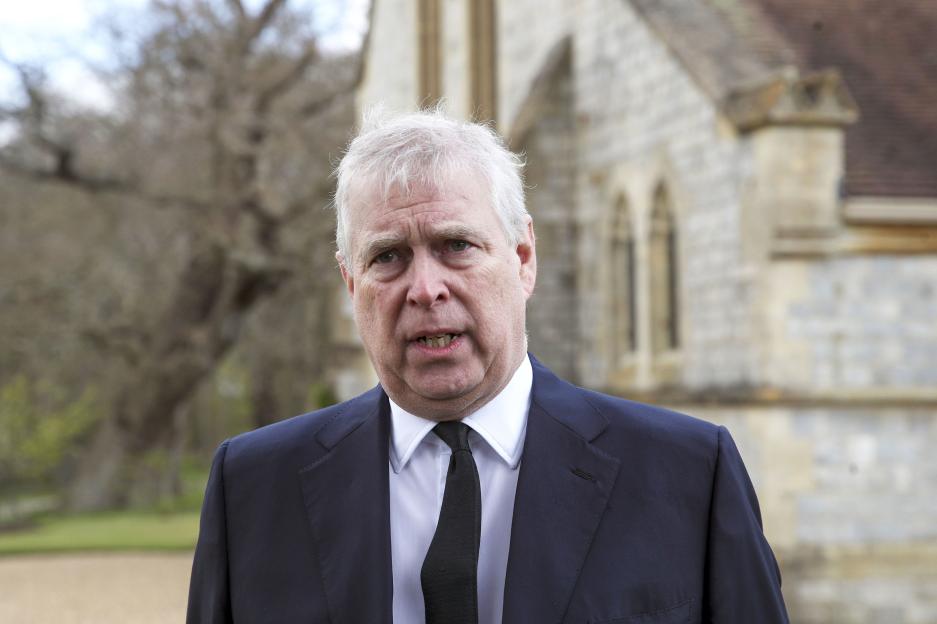WITH the promise of a lucrative modelling job, young women are packing their bags and heading to the sun-soaked holiday hotspots of Southeast Asia, where a new future awaits.
But on arrival, the shocking truth becomes clear – they have been lured to work in robbing millions of people online every year. And when the bloodthirsty gangs have worked them into the ground, they squeeze every last penny out of them by harvesting their organs, a terrifying new reports suggest.
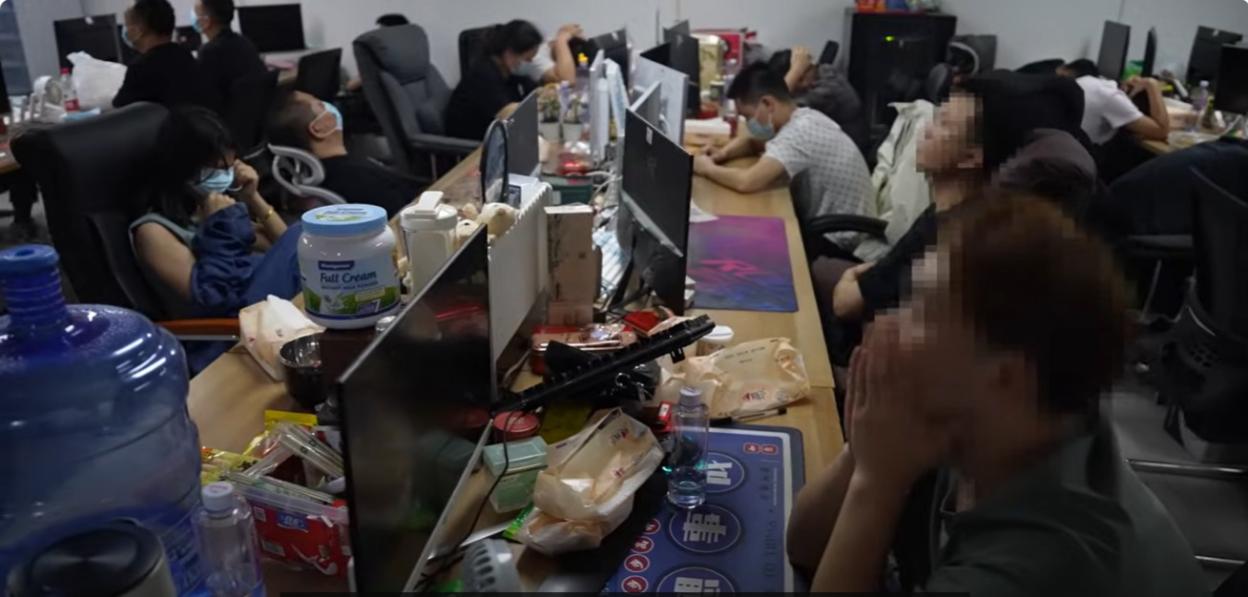 Trafficked workers are packed into crowded call centres and forced into committing scamsCredit: Interpol
Trafficked workers are packed into crowded call centres and forced into committing scamsCredit: Interpol
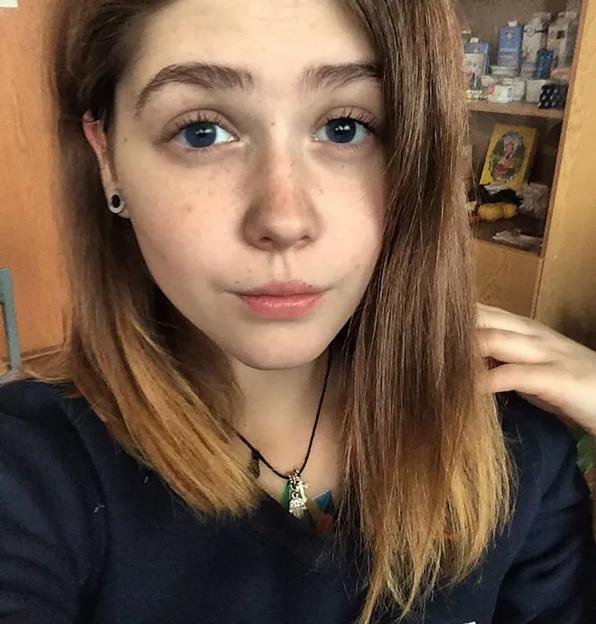 Vera Kravtsova, 26, from Belarus, was reportedly killed and harvested for her organs in a Myanmar scam centreCredit: East2West
Vera Kravtsova, 26, from Belarus, was reportedly killed and harvested for her organs in a Myanmar scam centreCredit: East2West
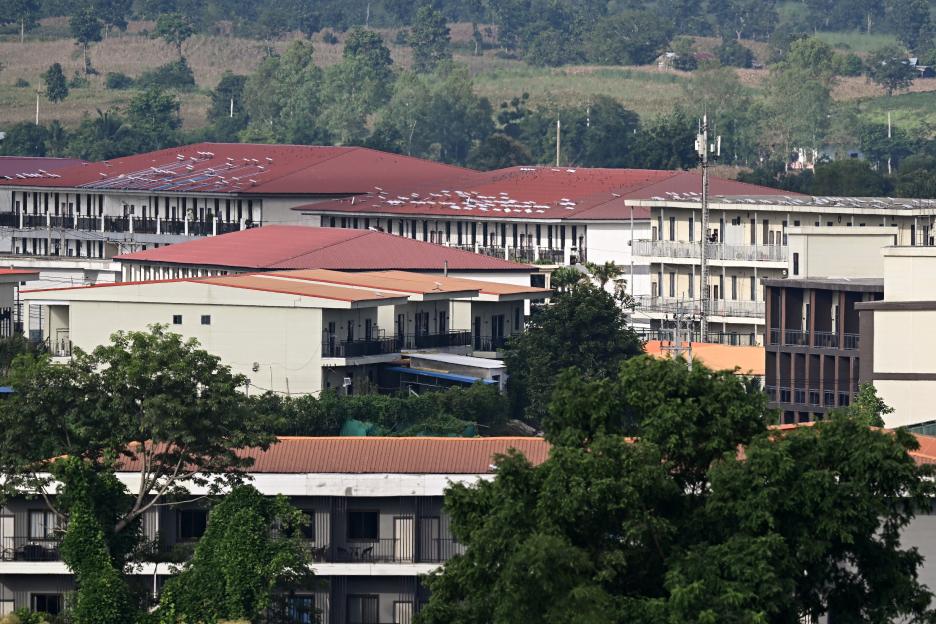 KK Park complex – one of the most notorious scam centres – in Myanmar’s eastern Myawaddy townshipCredit: AFP
KK Park complex – one of the most notorious scam centres – in Myanmar’s eastern Myawaddy townshipCredit: AFP
, is thought to be one such victim.
She flew to on September 12 this year after accepting a lucrative modelling offer, but within a week, she was over the border in a scam camp, local media reported.
Here, she was told she must “be beautiful” and “extort from wealthy clients”.
The last time her mother heard from her was October 4 – and within days, she got a message saying Vera had been killed and harvested for her organs.
Vera is just one of an estimated 120,000 people who have been lured to the scam camps – mostly run by Chinese gangsters – where they are trapped and forced to rip people off online to make money for their captors.
Many are lured with this sick tactic – the promise of fake , purely to get them into the country, only for them to be snatched and trafficked into factories commonly found across Southeast Asia and .
Once there, they are forced to extort money from people around the world – including the UK – out of their life savings through a variety of .
But even more disturbing are reports that victims are having their organs harvested when the gangs no longer have a use for them in a bid to make every last penny from their hostages.
Dozens of these sophisticated factories have sprung up along the border with – miniature cities beyond the reach of authorities and operating with impunity.
It’s believed the sprawling sites even have specialised doctors and blanket blood testing on arrival, which experts say bear the hallmarks of an organ harvesting operation.
Nick Dale, Director of Intelligence at Stop the Traffik , says he “would not be surprised” if the traffickers had branched out into organ harvesting – though the has not recorded any specific cases.
Concrete information about the activities is notoriously difficult to obtain, given the secrecy of the operation and intimidation of witnesses.
Nick tells The Sun: “The gangs are prepared to go to extreme levels of violence. They treat their victims like something other than human.
“Traffickers will always try and make as much money as possible. Once they’ve got somebody in their grasp, they will exploit them in every way they can.”
People are being duped by false job ads to travel to these places, and find it impossible to escape. They have no recourse from any authorities
Nick Dale, Director of Intelligence at Stop the Traffik
Adverts for these jobs are often posted on or Telegram, and offer higher wages than the targets could ever hope to make in their home countries.
They will often boast a number of perks and bonuses – like free accommodation – with the main requirement usually being good English language skills, so they will be able to speak to their scam victims.
Nick says the gangs behind these centres are perpetrating “double criminality” because they exploit both the workers in their clutches and the digital victims around the world.
He says: “People are being duped by false job ads to travel to these places, and find it impossible to escape. They have no recourse from any authorities.
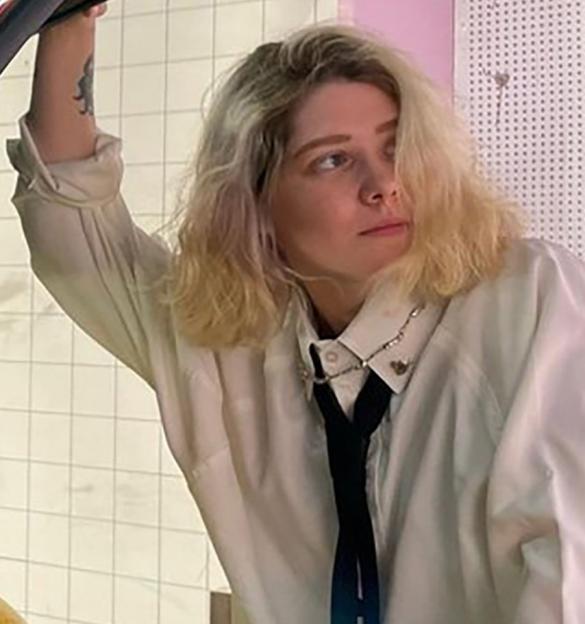 Vera Kravtsova was allegedly killed and had her organs sold on the black market after being tricked into a fake modelling jobCredit: East2West
Vera Kravtsova was allegedly killed and had her organs sold on the black market after being tricked into a fake modelling jobCredit: East2West
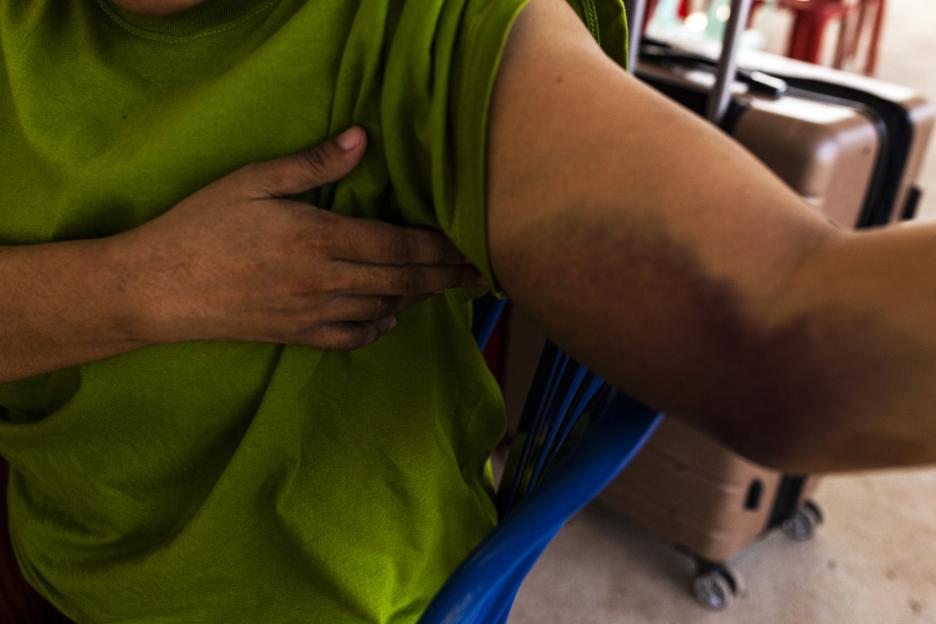 A victim shows injuries reportedly inflicted by punishment in one of the scam centresCredit: AFP
A victim shows injuries reportedly inflicted by punishment in one of the scam centresCredit: AFP
 A picture taken inside one of the scam centres during a crackdown operationCredit: AFP
A picture taken inside one of the scam centres during a crackdown operationCredit: AFP
“They face extreme violence in the compounds. We have heard accounts of severe beatings and the use of cattle prods as punishment. It is highly likely that some victims do not survive.”
Organ black market
The workers are trapped through a combination of physical and psychological methods.
There are “armed guards” stopping them from leaving, but victims are also told they must keep working to pay off debts imposed by the gangs.
Nick says: “Obviously, the idea is they can never work long enough to fully pay off these debts.”
Dr Arthur Caplan, a professor of bioethics at University Grossman School of , explained that organ harvesting is a tricky – but that the scam compounds are probably capable of it.
He tells The Sun: “There are certain requirements that must be met – you need quite a sophisticated set-up.
“You need a large number of people screened – you’ve got that with the blood testing. The people must be relatively healthy, which usually means not too old.
“They would also need the medical sophistication to get the organs out, given the complexity of the operation.”
 Dashinima Ochirnimayeva was also recruited as a model and was ‘slated for sale for her organs’Credit: East2West
Dashinima Ochirnimayeva was also recruited as a model and was ‘slated for sale for her organs’Credit: East2West
 Ksenia Panteleeva, from Russia, was freed from the camps and says captives are taken to a special compound where their organs are stolen
Ksenia Panteleeva, from Russia, was freed from the camps and says captives are taken to a special compound where their organs are stolen
Another key consideration is the distance between the donor and the recipient; organs do not survive being out of a body for too long.
Dr Caplan says: “Some areas of are close enough to offer a market, if organs are being harvested in Myanmar.”
He also reveals organs can fetch “anywhere from $100,000 to $1million” on the black market.
Mechelle Moore, CEO of Global Alms, an anti-trafficking charity, can provide a rare first-hand account of what is going on in the danger zone.
She is based in the Thai town of Mae Sot, just over the border from Myanmar, and has helped those who have managed to escape the compounds.
If you don’t do a good job, they send you to a neighbouring park and sell you for you organs
Ksenia Panteleeva, Scam centre survivor
Grace Mata, a 22-year-old Kenyan woman, was one such victim – and Mechelle believes she died after a botched surgery “illegally carried out at a hospital inside KK Park” – the most notorious of the compounds.
After being trafficked to KK Park and working there for four months, Grace was delivered into Thailand, unconscious and seriously ill, and died two weeks later.
Mechelle told Pulitzer Centre : “We tried to get the family here, but we couldn’t fast enough, so I ended up having to turn off the machine.”
The Kenyan embassy gave Mechelle power of attorney over Grace, so the tragic task of turning off the life support machine fell to her.
Mechelle said: “I pulled out the tube and watched her slowly pass.”
She believes the doctors who operated on Mata were brought in to harvest organs. Most “assume it’s for organ trafficking,” she said.
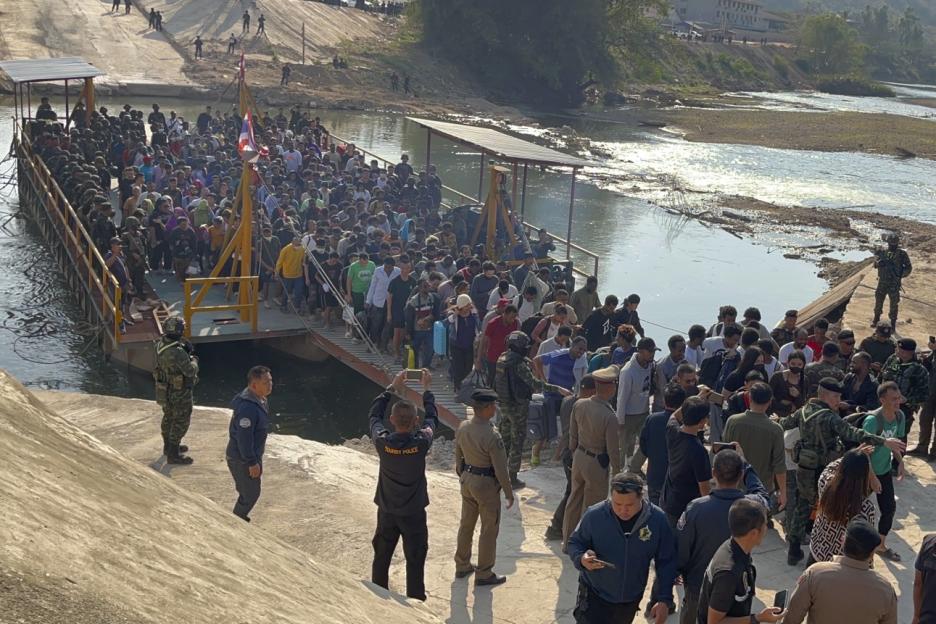 More than 250 were rescued from Myanmar compounds in February 2025, according to the Thai ArmyCredit: AP
More than 250 were rescued from Myanmar compounds in February 2025, according to the Thai ArmyCredit: AP
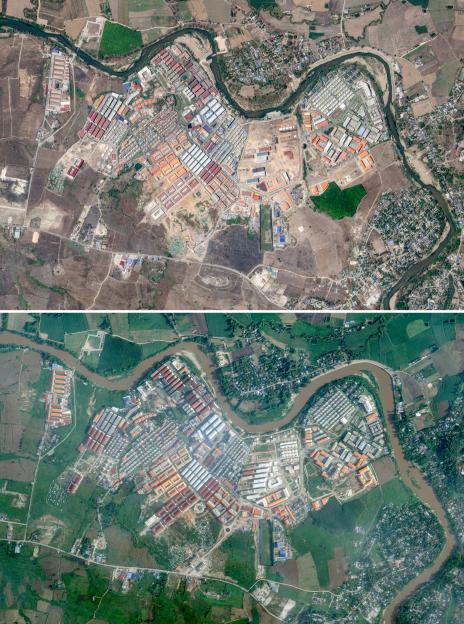 Aerial views of KK Park in March, top, and September, bottom, 2025Credit: AFP
Aerial views of KK Park in March, top, and September, bottom, 2025Credit: AFP
Belarus and have both reported a number of other similar cases since 2023 – like Dashinima Ochirnimayeva, 24, who was also recruited as a model and was “slated for sale for her organs”, according to Mash agency.
The threat is so pressing that Belarus’ Foreign Ministry has been forced to repeatedly warn its citizens to “carefully and meticulously job offers from the region [south-east Asia]”.
Survivors of KK Park report that blood testing has now become compulsory on arrival – and most assume this is to aid organ harvesting.
Blue Dragon, a charity that rescues victims from in , said the gangs set quotas for how much money each trafficked worker needs to extract from the scam victims.
Michael Brosowski, the organisation’s founder, said: “The traffickers have been taking the organs of their victims, such as the kidneys, if they haven’t been working hard enough.”
‘Shocked with tasers’
Another Russian woman, Ksenia Panteleeva, responded to a job advert to be a translator in Thailand, but was met by armed militants who ferried her across the Moei River into Myanmar.
She was made to work in a camp called Paulin, two minutes from the infamous KK Park, which she says was “built to beat people”.
Ksenia told Tass : “If you don’t do a good job, they send you there. If nothing changes there, they send you to the neighbouring park, where they sell people for their organs.”
She said her captors would bring people into her room and beat them in front of her, saying it was her fault.
Ksenia said: “They forced the men to lift a chair over their heads and hold it, then shocked them with tasers. If the chair fell, they shocked them even harder.
“They didn’t touch me physically because they needed me for social media.”
 Workers at the centres during a crackdown by Myanmar’s Karen Border Guard Force (BGF)Credit: AFP
Workers at the centres during a crackdown by Myanmar’s Karen Border Guard Force (BGF)Credit: AFP
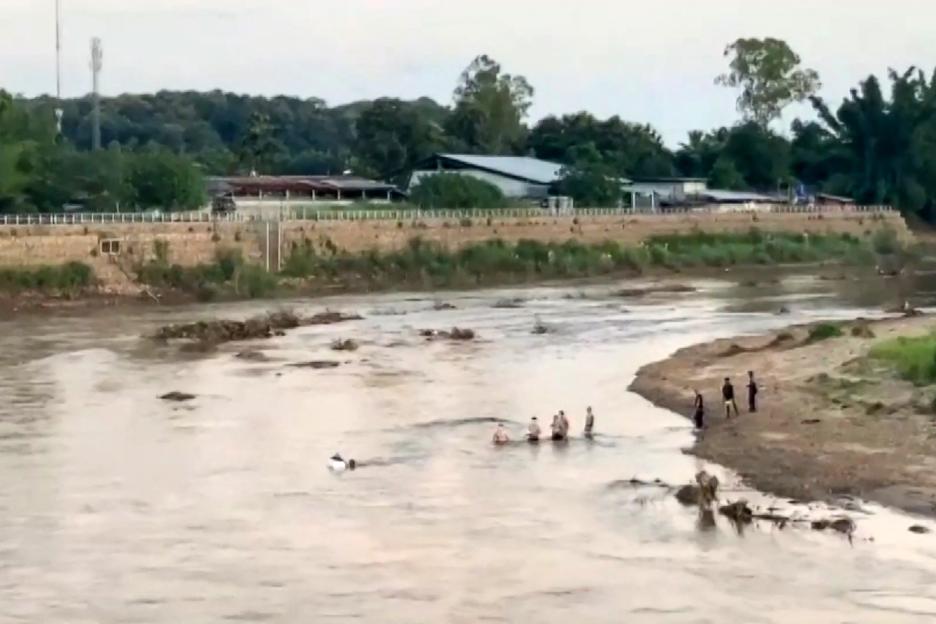 People fleeing across the Moei river near KK Park in Myanmar over to ThailandCredit: AFP
People fleeing across the Moei river near KK Park in Myanmar over to ThailandCredit: AFP
 A bogus job advert on Facebook designed to lure targets to the scam compounds
A bogus job advert on Facebook designed to lure targets to the scam compounds
While the level of depravity may seem unfathomable, the motivation behind organ harvesting can be easily understood by the amount of money sloshing around the billion-dollar industry.
The lucrative trade is driven by a global shortage of organs – and desperate people who will pay almost anything for another shot at life.
The World Health Organization estimates that only 10 percent of the global need for organ transplantation is being met.
And this enormous gap is partly being plugged by murky transnational trafficking.
Mostly, the organs come not from unwilling victims but people living in poverty who face no choice but to sell their bodies.
They turn to criminal organisations who facilitate this, and then the donors receive only a fraction of the handsome price the organs fetch.
Others – like those in the scam camps – are harvested against their will.
 Workers in these centres are forced to live in harsh conditions and punished severelyCredit: AFP
Workers in these centres are forced to live in harsh conditions and punished severelyCredit: AFP
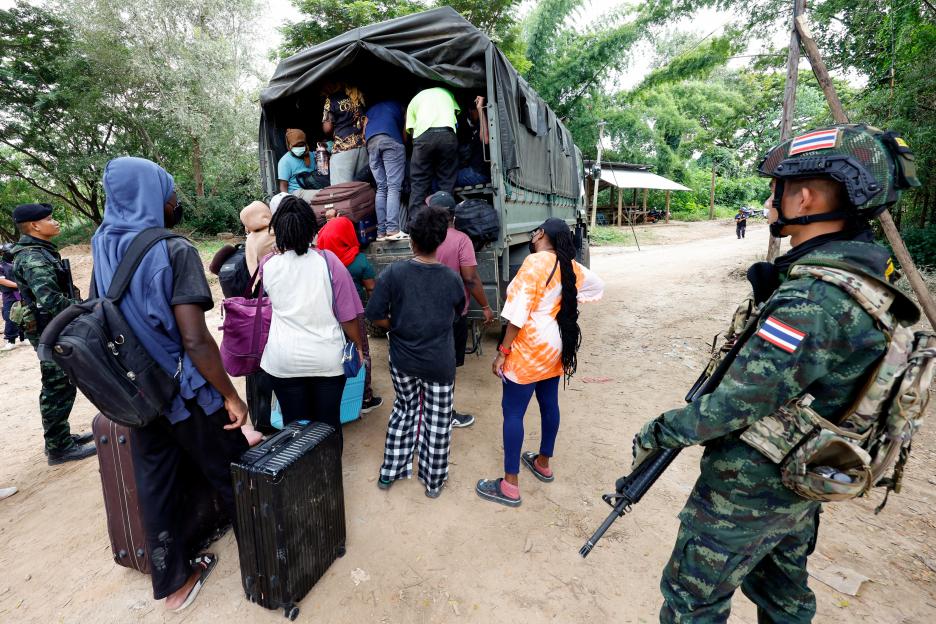 Thai soldiers escorting people rescued from KK Park after it was shut down in OctoberCredit: AFP
Thai soldiers escorting people rescued from KK Park after it was shut down in OctoberCredit: AFP
Governments around the world are now becoming aware of the Southeast Asian compounds, which represent the largest coordinated scamming effort globally.
At the end of October, the infamous KK Park was raided by Myanmar’s military, which claimed to have cleared the complex out after five years of deep criminality.
But the scam centres are only expanding and spreading, with continual reports of them popping up in new locations and countries as gang masters hoover up billions.
And it’s already too late for Vera – along with an unknown number of others just like her.
What is sextortion?
SEXTORTION is a type of online blackmail.
It’s when criminals threaten to share sexual pictures, videos, or information about you unless you pay money or do something else you don’t want to.
Anyone can be a victim of sextortion. However, young people aged between 15 to 17, and adults aged under 30, are often most at risk.
Criminals often target people through dating apps, social media, webcams, or pornography sites. They may use a fake identity to befriend you online. If a person you’ve just met online chats to you in a sexual way, or asks for sexual images, it might be an attempt at sextortion.
You should be wary if someone you’ve met online:
- is trying to start a relationship with you very quickly (they may even send you a sexual image first)
- chats to you in a sexual way, or asks for sexual images, soon after you’ve met them.
- has sent friend requests to lots of people, not just you
- repeatedly asks you to do sexual things that you’re not comfortable with
- tells you they’ve hacked your account or have access to your contacts
Sextortion attempts can happen very quickly, or they can happen over a long time. You should never share sexual images or information about yourself if you are not comfortable.
You can still be a victim of sextortion if you haven’t shared sexual images or information. Criminals may have hacked one of your accounts, or created edited or fake images or videos, like deepfakes, of you that appear real.
Even if blackmail isn’t involved, sharing or threatening to share intimate photos or videos of you without your permission is illegal. This is called ‘ revenge porn’ or intimate image abuse .
From the Met Police website
